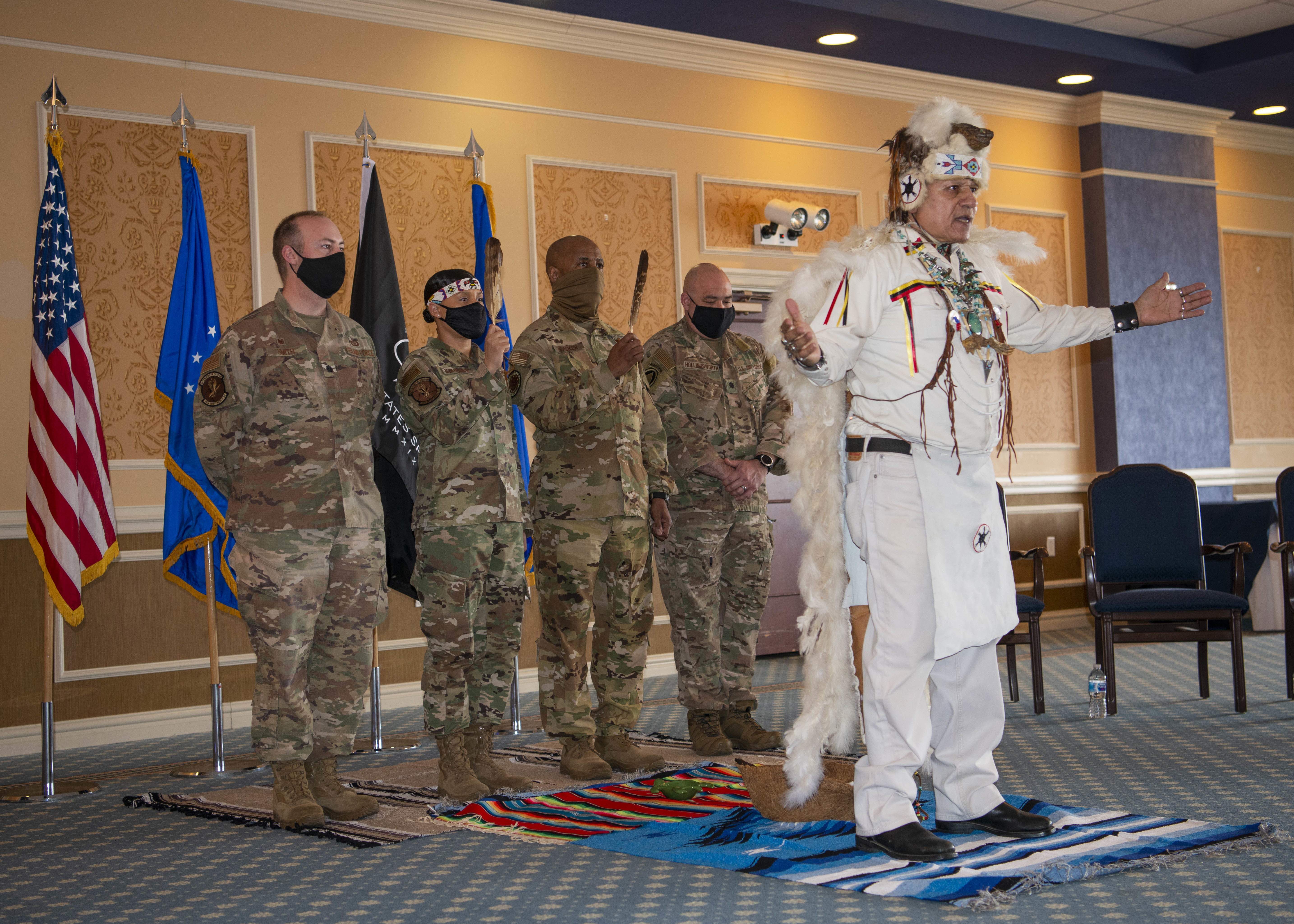
- Details
- By Darren Thompson
HAMPTON, Va. — On March 12, the United States Space Force (USSF) welcomed its first female American Indian Intelligence Officer: Captain Haida StarEagle, member of the Matinecock Tribe. Her father, Chief Samuel Little Fox, led the invocation during the induction ceremony.
"Captain StarEagle has the impressive combination of capability, superior intellect, drive and passion for serving," said Lt. Col. Michael Hollingsworth, United States Special Operations Command, in a statement. "The Space Force is gaining an absolutely phenomenal leader.”
Established on Dec. 20, 2019, the U.S. Space Force is the newest branch of the Armed Forces. The USSF was established within the Department of the Air Force, meaning the Secretary of the Air Force has overall responsibility for the USSF, under the guidance and direction of the Secretary of Defense.
According to Public Affairs Advisor to the Vice Chief of Space Operations Lynn Kirby, Captain StarEagle is not the first Native American woman in the Space Force. The numbers of other Native Americans in the USSF couldn’t be validated as of press time.
 Chief Samuel Little Fox, shaman of the Matinecock Tribe and all 13 tribes on Long Island, N.Y., leads the invocation at his daughter's, Capt. Haida StarEagle, induction to the United States Space Force at Joint Base Langley-Eustis, Virginia, March 12, 2021. (Photo: 1st. Lt. Leah Young)
Chief Samuel Little Fox, shaman of the Matinecock Tribe and all 13 tribes on Long Island, N.Y., leads the invocation at his daughter's, Capt. Haida StarEagle, induction to the United States Space Force at Joint Base Langley-Eustis, Virginia, March 12, 2021. (Photo: 1st. Lt. Leah Young)
USSF intelligence officers analyze data to coordinate with other services to determining the capabilities and vulnerabilities of potential adversaries. Intelligence officers are highly trained to provide information to Airmen so they can successfully complete their missions through surveillance and reconnaissance. A demanding training is required including the completion of 12 months in commissioned service after completing the Intelligence Officer Initial, must be between the ages of 18 and 39, and pass a current Single Scope Background Investigation (SSBI).
The Matinecock Tribe is an Algonquian people who reside on the north shore of Long Island, N.Y. They are not recognized as a tribe on a federal level or in the state of New York.
"My father told me when I was younger that I must find my own way and figure out how to leave a legacy for our tribe," said Captain StarEagle in a press release. "Joining the Space Force and continuing to serve is the best way to leave my mark within my tribe, create a legacy for my people, and make my father proud."
More Stories Like This
Native News Weekly (August 25, 2024): D.C. BriefsUS Presidents in Their Own Words Concerning American Indians
Two Murdered on Colville Indian Reservation
NDAA passes House; Lumbee Fairness Act Advances
NFL, Vikings to Host Native All-American Game, Youth Flag Clinic
Help us defend tribal sovereignty.
At Native News Online, our mission is rooted in telling the stories that strengthen sovereignty and uplift Indigenous voices — not just at year’s end, but every single day.
Because of your generosity last year, we were able to keep our reporters on the ground in tribal communities, at national gatherings and in the halls of Congress — covering the issues that matter most to Indian Country: sovereignty, culture, education, health and economic opportunity.
That support sustained us through a tough year in 2025. Now, as we look to the year ahead, we need your help right now to ensure warrior journalism remains strong — reporting that defends tribal sovereignty, amplifies Native truth, and holds power accountable.
 The stakes couldn't be higher. Your support keeps Native voices heard, Native stories told and Native sovereignty defended.
The stakes couldn't be higher. Your support keeps Native voices heard, Native stories told and Native sovereignty defended.
Stand with Warrior Journalism today.
Levi Rickert (Potawatomi), Editor & Publisher
